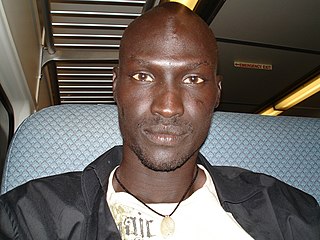A Quote by Rebecca Hamilton
Strikingly consistent across all of the battles in Sudan's history has been a fundamental conflict over what are and what are not seen as legitimate aspects of Sudanese identity.
Quote Topics
Related Quotes
I've been reading and researching various aspects of history - Dickens' London, Nelson's sea battles, Magellan's nautical explorations, the weapons and battles and key figures of the American Civil War - for most of my life. I pick up a book here or there or see a documentary or talk with an expert in the subject, and my curiosity about the one area of study and discovery always leads to another.
There is something about military history that fascinates me. You find that many battles have been lost by people with very good military background when they fought battles in a battleground they didn't understand. I have seen that in business, too. You have to look at a marketplace like a battle-ground.
I try not to cover Sudan from afar. I feel really uncomfortable writing about Sudan when I'm not there. It always looks different. When you're outside Sudan it's easy to lose sight of how much of what happens is driven by local politics. And when you're in America in particular, there's this sense that what D.C. has to say is the only thing that counts. Unsurprisingly people in Sudan don't feel the same way.
It's like we're suffering from an identity crisis, and that identity is in our arts and the fact that we don't find it chief amongst our agendas to teach our kids who we are as a nation and the battles we've had on this ground and how they've been successfully resolved. We can't enjoy the fruits of the labor of our ancestors.
What the left ends up missing is that politics have always been at the heart of American culture; it's been a white identity that's been rendered invisible and neutral because it's seen as objective and universal. As a result, we don't pay attention to how whiteness is one among many racial identities, and that identity politics have been here since the get-go.
I now have Grit Scale scores from thousands of American adults. My data provide a snapshot of grit across adulthood. And I've discovered a strikingly consistent pattern: grit and age go hand in hand. Sixty-somethings tend to be grittier, on average, than fifty-somethings, who are in turn grittier than forty-somethings, and so on.
































